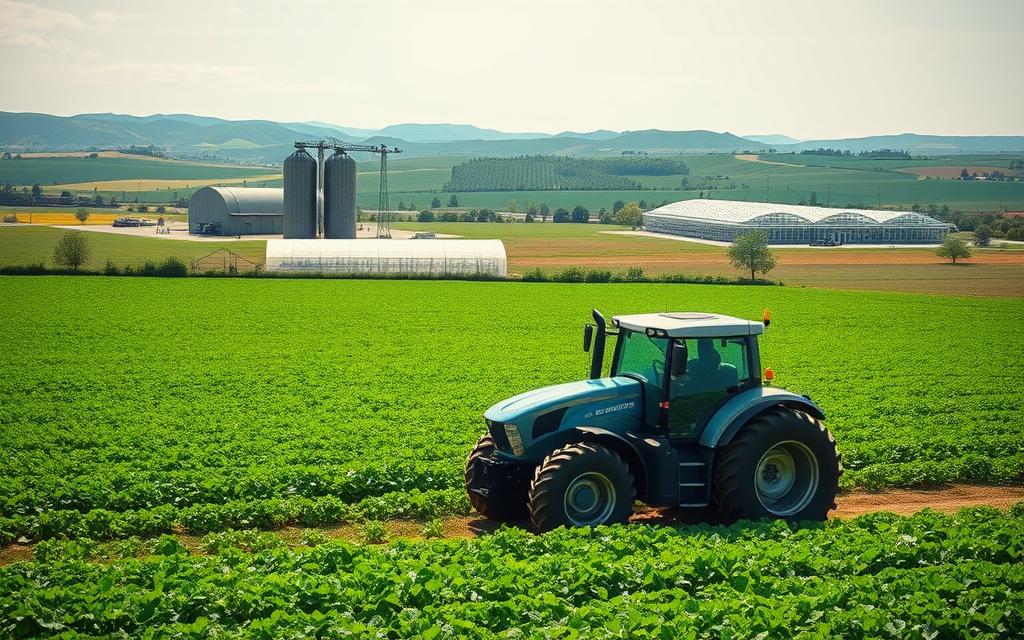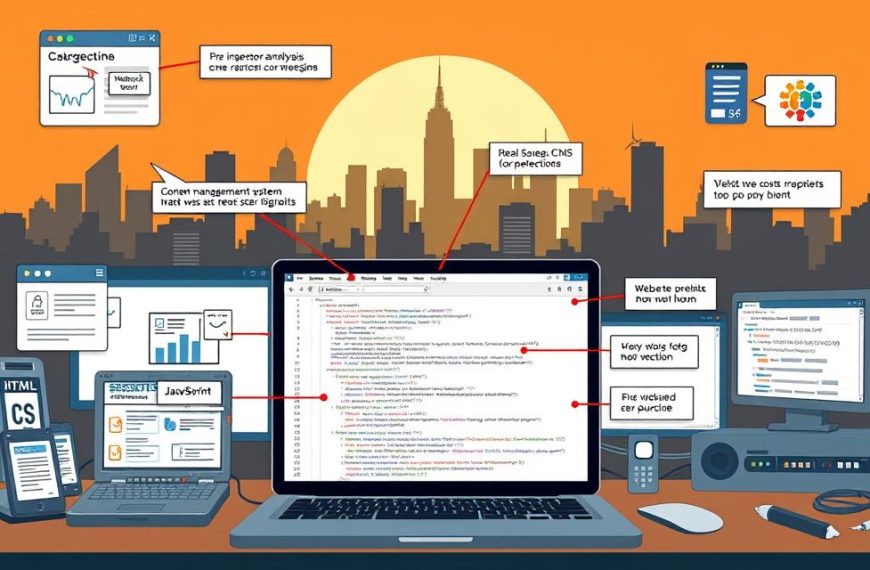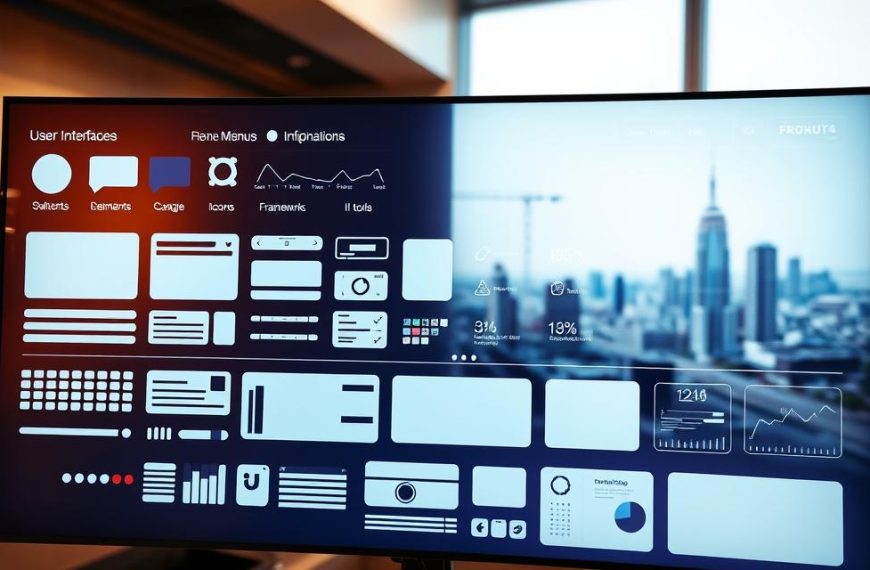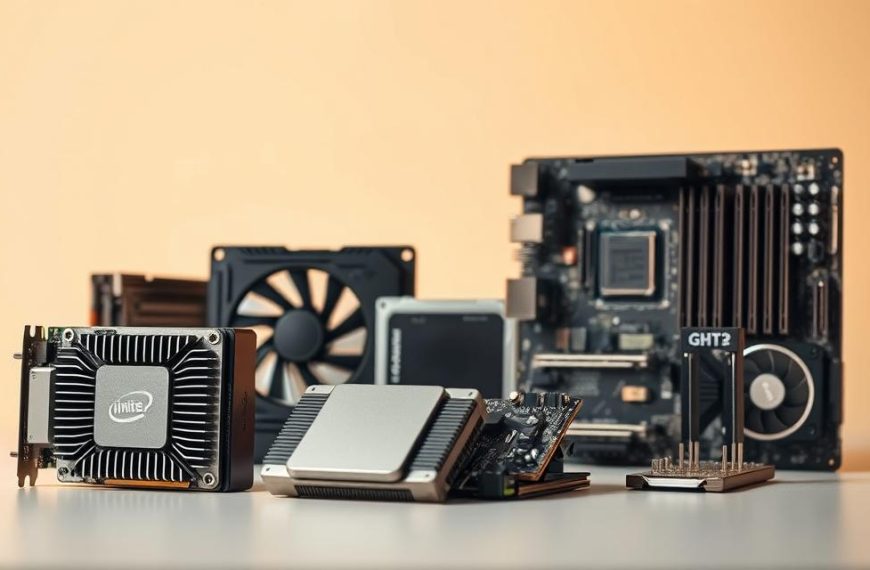Farming practices worldwide have been revolutionised by agricultural technology. It’s driving remarkable productivity and sustainability. Modern agriculture is evolving rapidly, turning traditional methods into sophisticated, data-driven approaches.
The National Research Council report shows how farming innovations have boosted crop yields. These advancements have also reduced environmental strain. Farmers can now make smarter decisions and use resources more efficiently.
Modern technologies are reshaping food production methods. They’re creating more sustainable and intelligent farming ecosystems. Precision spraying and autonomous farming are just two examples of these innovations.
Automated farming systems can generate up to £320 per acre yearly in orchards and vineyards. These technologies help farmers overcome challenges and reduce labour costs. They also improve crop management strategies.
Global agricultural demands continue to grow. Technological solutions will be crucial in meeting food security challenges. They’ll also help maintain environmental sustainability. The future of farming is closely linked with technological progress.
The Evolution of Agricultural Technology in Modern Farming
Farming has seen a remarkable shift from traditional methods to digital solutions. This transformation has revolutionised cultivation and food production. Modern farming techniques now represent a significant leap forward.
Digital agriculture has evolved, driven by innovative technologies that boost farming efficiency. Farmers now use sophisticated tools that were once unimaginable. These advancements have dramatically changed the agricultural landscape.
Technological Milestones in Agriculture
Key technological breakthroughs have reshaped agricultural practices:
- Introduction of precision farming technologies
- Implementation of GPS-guided agricultural machinery
- Development of advanced crop monitoring systems
- Integration of artificial intelligence in crop management
Impact on Resource Management
Modern farming techniques have greatly improved resource use. Sensor technologies can now optimise water usage in agriculture. Some systems have shown water savings of up to 25% through smart irrigation strategies.
Digital Solutions Transforming Agriculture
Digital agriculture adoption has sped up, allowing farmers to make data-driven decisions. Currently, less than 5% of farmers globally use next-generation agricultural technologies. This presents significant room for growth and innovation in the sector.
By 2050, agricultural technology must support feeding approximately 9 billion people worldwide.
AgriFoodTech investments reached £12.3 billion in 2023. This figure signals the sector’s huge potential for technological advancement. It also highlights the growing focus on sustainable food production.
Genetically Engineered Crops: A Revolutionary Breakthrough
Genetic engineering has revolutionised global food production. It offers unique solutions to crop cultivation challenges. This technology has reshaped agricultural landscapes, boosting yields and promoting sustainable farming.
GM crops have made a significant impact since 1996. Global crop yields have increased by over 370 million tonnes. The technology has generated £94.1 billion in farm income benefits.
GM crop production has grown from 1.7 million hectares in 1996. It reached 190.4 million hectares in 2019, showing remarkable expansion.
- Global GM seed market growing at 9.83–10% CAGR
- 22% increase in global crop yield
- 37% reduction in pesticide usage
- 18% decrease in environmental impact
Countries have strategically adopted this agricultural innovation. The United States leads with 71.5 million hectares of GM crops. Brazil follows closely with 52.8 million hectares.
As of January 2022, 44 countries have approved 40 GM crops. This shows widespread acceptance of the technology.
Researchers are addressing concerns about GM crops. These include biodiversity preservation and long-term ecological impacts. The technology is crucial for tackling global food security challenges.
With the world population expected to reach 9.7 billion by 2050, GM crops are vital. They offer a way to meet growing food demands sustainably.
Genetic engineering provides innovative solutions to enhance agricultural productivity and sustainability.
How Has Technology Helped Agriculture
Farming has changed dramatically thanks to new tech. Smart farming and precision agriculture are revolutionising crop management. These approaches use cutting-edge tech to boost farm output and sustainability.
Modern data tools give farmers valuable insights into their crops. GPS-guided equipment tracks field sections precisely. This lets farmers make better decisions based on accurate data.
Smart Farming Solutions
Self-driving tractors use advanced navigation tech to work fields. Drones monitor crops in real-time, assessing their health. IoT sensors gather detailed data about the farm environment.
- Self-driving tractors utilise advanced navigation technologies
- Drone-based monitoring provides real-time crop health assessments
- IoT sensors collect detailed environmental data
Precision Agriculture Technologies
Precision tech has greatly improved how farms use resources. Farmers can now apply water, fertilisers, and pesticides more accurately. This reduces chemical use while keeping crop yields high.
- Geofencing enables targeted crop treatment
- Advanced sensors measure crop greenness
- Variable rate application systems optimise input distribution
Data-Driven Decision Making
Farm data analysis gives crucial insights that change traditional practices. AI and big data help predict crop performance. They also aid in managing resources and reducing environmental impact.
Technology is not just improving agriculture; it’s creating a sustainable future for global food production.
One Smart Spray can cut herbicide use by up to 70%. John Deere’s self-driving tractors work fields on their own. These innovations show how farming is becoming more digital.
Radio Technology: Bridging the Information Gap
Radio plays a vital role in spreading farming info, especially in developing areas. It’s a powerful tool for teaching farmers, reaching places without modern tech.
In rural areas, radio is often the main source of farming knowledge. It offers insights on crop management, market prices, and weather forecasts.
Research shows that listening to radio programmes boosts farming know-how. Participatory radio approaches have made communication more interactive and responsive.
Community radio stations excel at delivering local farming info. They broadcast in local languages, reaching even the most distant farming communities.
Radio bridges the information gap, connecting farmers with essential agricultural knowledge and market insights.
Radio’s easy access and low cost make it priceless for farmer education. Many rural homes have a radio, providing crucial info for farming growth.
Mobile and Digital Innovations in Farming
Digital technologies are changing farming in exciting ways. Farmers now use innovative solutions to boost their productivity and efficiency. These include agricultural apps and farm management software.
These new tools are reshaping how farms operate. They offer unique chances for farmers to improve their work and make smarter choices.
Agricultural Applications and Management Tools
Modern farm software helps track crops, manage resources, and streamline operations. It offers real-time crop monitoring and resource allocation tracking.
The software also provides predictive analytics for harvest planning. It even includes financial management tools.
- Real-time crop monitoring
- Resource allocation tracking
- Predictive analytics for harvest planning
- Financial management integrations
IoT Applications in Agriculture
The Internet of Things (IoT) has become a game-changer in farming. Smart sensors now allow for precise soil moisture monitoring and automated irrigation systems.
IoT also enables livestock tracking devices and environmental condition assessment.
- Precise soil moisture monitoring
- Automated irrigation systems
- Livestock tracking devices
- Environmental condition assessment
“Digital technologies are not just tools, they’re transformative solutions that empower farmers to work smarter, not harder.”
Real-time Monitoring Systems
Advanced IoT lets farmers watch their operations from afar. It gives quick insights into crop health, equipment performance, and environmental conditions.
These systems allow farmers to respond swiftly to changing farm conditions.
Mobile tech and digital platforms keep driving farm innovation. They promise better efficiency and sustainability for farmers around the world.
Sustainable Agricultural Practices Through Technology
Technology is transforming sustainable farming with innovative solutions. These advancements reduce environmental impact and boost agricultural productivity. Eco-friendly agriculture now enjoys a new era of precision and efficiency.
Key technological advancements in sustainable farming include:
- Precision agriculture technologies that optimise resource management
- Smart irrigation systems reducing water consumption
- Autonomous farming equipment minimising environmental disruption
Remote sensing technologies have become vital tools for sustainable farming. Farmers can now spot crop stressors with great accuracy. This can potentially increase yields by 15%.
Drone monitoring allows quick assessment of large farm areas. It can cover 100 acres in less than an hour.
Technology enables farmers to produce more while consuming fewer resources.
Vertical farming is another breakthrough in sustainable agriculture. These systems use up to 95% less water than traditional methods. They also produce more crops per square foot.
The global vertical farming market is set to reach £12.2 billion by 2028. This shows significant growth potential in the sector.
Precision agriculture technologies offer impressive sustainability benefits. These include:
- 20% potential crop yield increases
- 10-30% reduction in fertiliser usage
- 50% decrease in water consumption
Farmers worldwide are adopting these transformative solutions. This shift is creating a more eco-friendly agricultural landscape. As technology advances, sustainable farming practices continue to improve.
Conclusion
Technological advances have transformed farming practices, tackling global food production challenges. These innovations help farmers produce more crops with fewer resources. Agricultural technology is crucial for feeding the growing world population.
Precision agriculture is changing farming methods. By 2050, each farm may generate 4.1 million data points daily. This digital shift allows for better resource management and improved crop yields.
The future of farming depends on advanced technologies. GIS, digital twins, and smart monitoring systems will optimise agricultural outcomes. These tools will help create more efficient and sustainable farming practices.
Research and development have driven these technological breakthroughs. Global public investment in agricultural R&D doubled between 1981 and 2016. Private sector spending more than tripled during the same period.
Agricultural technologies will continue to evolve. This progress is vital for creating resilient and productive farming systems. Digital innovations and data-driven approaches will help meet global food demand.
By embracing these new technologies, farmers can boost productivity. They can also reduce their environmental impact. This shift will support farmers worldwide and ensure food security for future generations.












